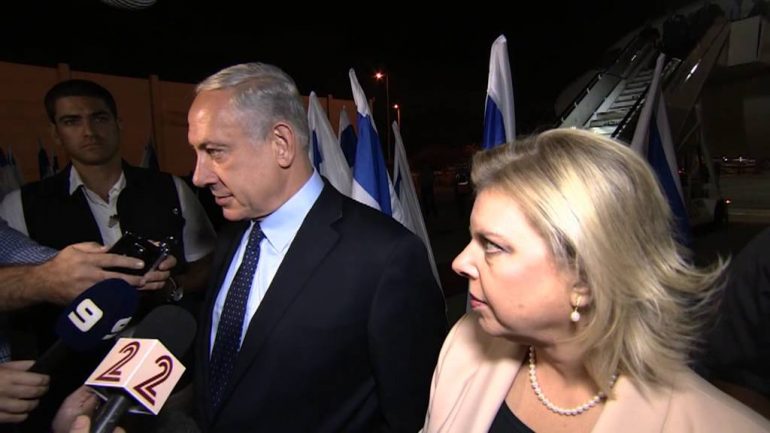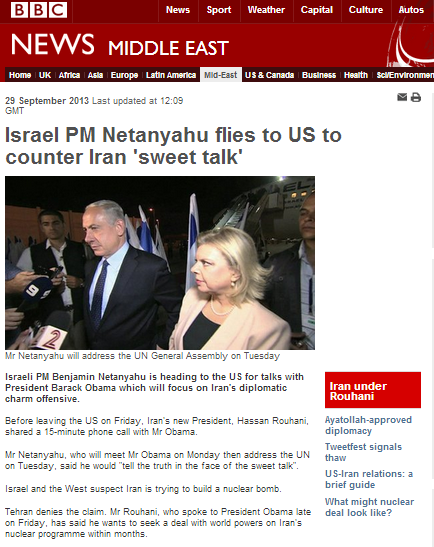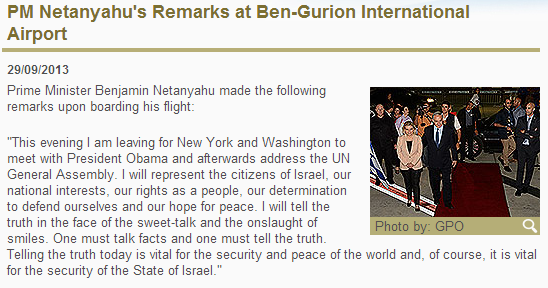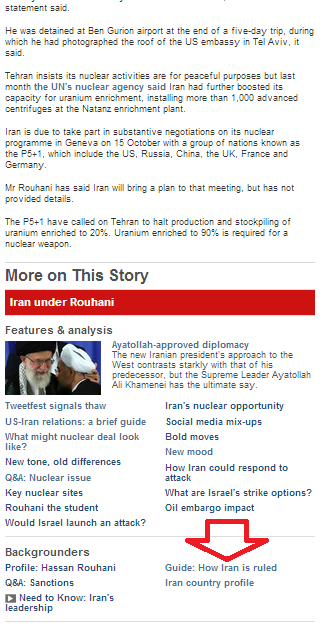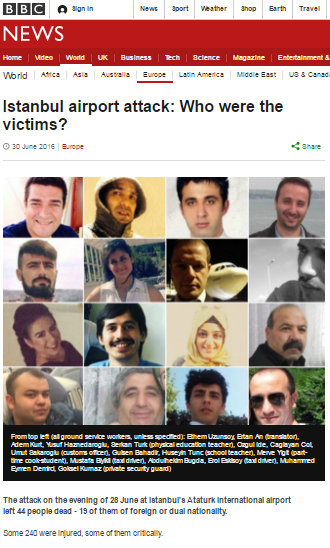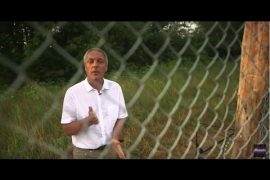On September 29th 2013 an article titled “Israel PM Netanyahu flies to US to counter Iran ‘sweet talk’” appeared on the Middle East page of the BBC News website.
The article opens:
“Israeli PM Benjamin Netanyahu is heading to the US for talks with President Barack Obama which will focus on Iran’s diplomatic charm offensive.”
The source of the BBC’s professed knowledge of the subject matter of the talks (which, at the time that was written, had yet to take place) is not made clear, but it is probably safe to assume that the focus of the actual conversation between Netanyahu and Obama was core issue of the Iranian nuclear programme itself rather the triviality of Rouhani’s smiles and Tweets – as claimed by the BBC. The report continues:
“Mr Netanyahu, who will meet Mr Obama on Monday then address the UN on Tuesday, said he would “tell the truth in the face of the sweet talk”.”
That remark was made to reporters at the airport – specifically in response to the question “Are you worried about the rapprochement between Washington and Tehran?”. Netanyahu’s full reply was as follows:
Three sentences of the BBC report are devoted to the subject of information regarding the arrest of a suspected Iranian spy earlier in the month which was made public by the security services.
“Hours after Mr Netanyahu’s plane took off for New York, Israel’s Shin Bet intelligence service disclosed that a Belgian man of Iranian origin had been arrested on 11 September on suspicion of spying.
Ali Mansouri, 50, entered Israel under the name Alex Mans and had been sent by Iran’s Revolutionary Guard elite Quds force, a Shin Bet statement said.
He was detained at Ben Gurion airport at the end of a five-day trip, during which he had photographed the roof of the US embassy in Tel Aviv, it said.”
The BBC’s claim that “he had photographed the roof of the US embassy” of course suggests that was all that Mansouri photographed – which is clearly not the case, as seen in other news reports and in the ISA statement.
“Upon his arrest, many photographs of various sites in Israel which are of interest to the Iranian intelligence elements such as the building of the USA Embassy at Ha’Yarkon Street in Tel Aviv were found in his possession.”
The BBC article refrains from informing readers that Mansouri had made two earlier trips to Israel in 2012 and 2013 and it neglects to provide audiences with any context whatsoever regarding the range of activities carried out by the IRGC Quds Force. The only additional information provided on that subject comes in a June 2009 article titled “Guide: How Iran is ruled” which appears in the “backgrounders” section at the bottom of the report.
There, readers are given a very anodyne – and very much out of date – short profile of the IRGC.
“The armed forces comprise the Revolutionary Guard and the regular forces. The two bodies are under a joint general command.
All leading army and Revolutionary Guard commanders are appointed by the Supreme Leader and are answerable only to him.
The Revolutionary Guard was formed after the revolution to protect the new leaders and institutions and to fight those opposing the revolution.
The Revolutionary Guard has a powerful presence in other institutions, and controls volunteer militias with branches in every town.”
BBC audiences are not told about the IRGC-QF’s connections with Hizballah and other terrorist organisations, its presence in Syria and Lebanon or its own terrorist activities, including those against Israeli targets in recent years. Without that vital context, it is unlikely that the majority of readers would understand the full significance of Mansouri’s arrest.
Additional BBC background material not linked to in this report – but available via an internet search – comprises an equally antiquated profile of the IRGC dating from October 2009 and a report on the IRGC’s business interests from July 2010.
Related articles:

